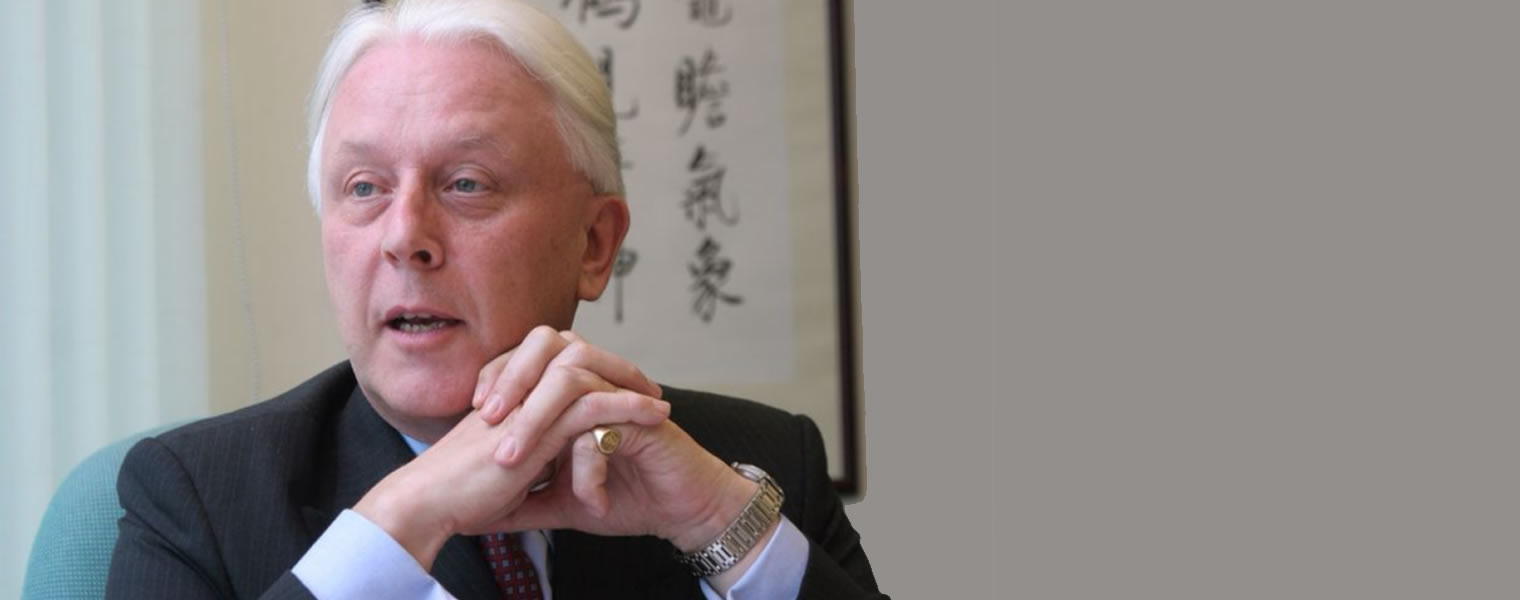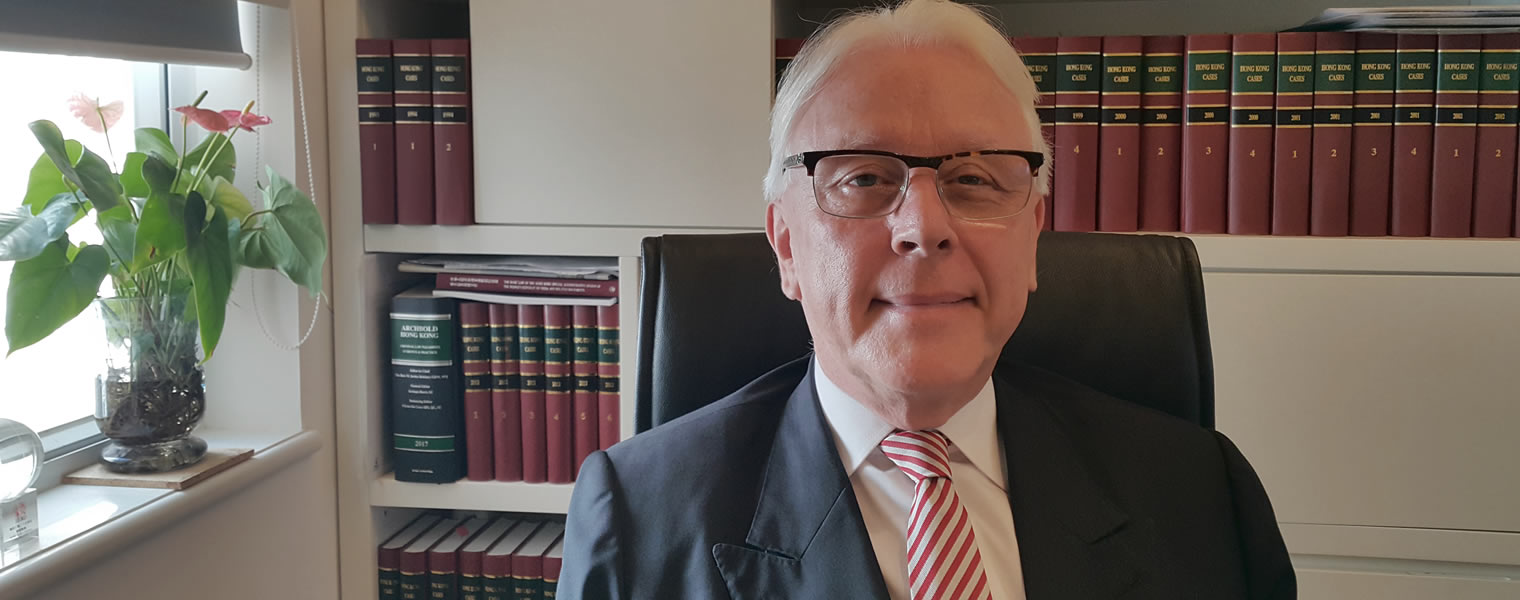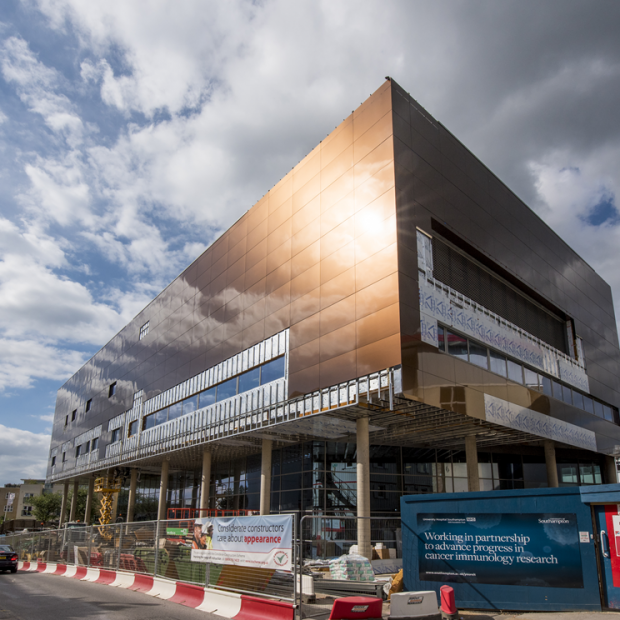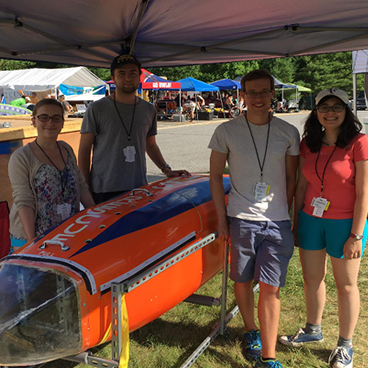Hartley News Online Your alumni and supporter magazine
When Hong Kong transferred its sovereignty to China, its public prosecution system was in the hands of Southampton alumnus Grenville Cross (Law 1973). Grenville talks to Southampton Connects about being part of this chapter in history and his ongoing work supporting and protecting prosecutors across the globe.
What are your memories from your time at the University of Southampton?
My memories are of having to work very hard! Law is always a difficult subject, given its many branches. Although I was primarily interested in crime, I acquired good insights into other areas as well, which has stood me in good stead.
I was active in student politics, and found debating issues in the Students’ Union to be excellent preparation for my future career as an advocate. I also have fond memories of driving around Hampshire at the weekends to see the lovely country towns and the New Forest, and of shouting myself hoarse on the terraces at The Dell whenever the Saints played their home matches!
What was the most important thing you learned whilst at Southampton? Is there a lesson you took forward into your career?
I learned that once you commit yourself to something and persevere, then even the highest of mountains can be conquered. Prevail by perseverance.
You have enjoyed a remarkable career in law; what do you regard as your greatest achievement?
My appointment as Director of Public Prosecutions (DPP) of Hong Kong, China, in 1997, was quite extraordinary. Although I was a Queen’s Counsel and career prosecutor, nobody thought that after Britain handed Hong Kong back to China a Briton would still be appointed as the DPP. It showed an enlightened, if pragmatic, attitude by the post-colonial Hong Kong government.
Having been appointed, I then went on to serve as DPP for a record 12 years. I sought to establish the Hong Kong prosecution service as one of the most professional, transparent and effective in the Asia-Pacific Region.
When I hosted the 12th Annual Conference and General Meeting of the IAP in 2007, world prosecutors descended on Hong Kong, and were able to see for themselves that our prosecution service had truly come of age.
It was certainly a moment in history but how challenging was it to work in that post-colonial era?
To be appointed as DPP at this unique moment in Hong Kong’s history was, of course, a great challenge, as well as a huge honour. I saw it as my duty to show everyone that our legal system would not only be secure, but would go from strength to strength.
To achieve this, I set about building up the specialised expertise in the prosecution service, by being far more transparent about the way we worked, by establishing contacts with prosecutors around the world, and by meeting with prosecutors from Beijing and elsewhere in China to forge links and explain our system. I also helped initiatives throughout China to modernise the mainland’s criminal justice system.
When I left office in 2009, my mission had largely been accomplished, and our prosecution service was well regarded internationally and, for the most part, was trusted by the local population.
Tell us about your work with the IAP, in particular your work with Prosecutors in Difficulty.
Founded in 1994, the IAP is the first and only world organisation of prosecutors, and is a non-political and non-governmental organisation.
In 2011, having previously served on the IAP Executive Committee, I was elected Vice Chairman (Senate), and was re-elected just last month. The IAP Senate is a group of senior prosecutors who undertake special projects on behalf of the IAP, provide advice and make recommendations to the IAP President and Executive Committee.
As Vice Chairman, I obviously have a leadership role in the Senate, and regularly attend IAP meetings to meet officials and contribute to discussions.
In 2013, the IAP President appointed me to chair the IAP’s newly-formed Standing Committee on Prosecutors in Difficulty (SCIPD), for three years, and, last year, I was re-appointed for a second term. The SCPID comprises three prosecutors, the others being from South Africa and the US. Whenever prosecutors ask the IAP for help, their requests for assistance are referred to the SCPID to recommend the way forward.
This is, quite clearly, immensely important work, but it is a task I am very honoured to undertake, given that the rule of law internationally requires that the interests of prosecutors be protected and advanced. Some requests for assistance concern relatively minor matters, such as promotions, pay and postings, while others are far more serious, involving violence and threats to prosecutors and arbitrary dismissals and even imprisonment.
If my time as DPP was of historic significance in Hong Kong after reunification, my chairmanship of the SCPID has given me a central role in protecting prosecutors around the globe, which is most gratifying.
What other roles and responsibilities do you have?
I am Honorary Professor of Law at two universities in Hong Kong (Hong Kong University and the Chinese University of Hong Kong), and two in mainland China (China University of Political Science and Law, Beijing, and Zhongnan University of Economics and Law, Wuhan).
I lecture at these various institutions on criminal justice issues, including law reform, public prosecutions, sentencing offenders, money laundering and asset recovery, and the combat of corruption and transnational organized crime.
What advice would you give to our law students who are just starting their first term here at Southampton?
The law is an immensely useful discipline, even if one does not go into practice. It provides a vital training in many areas, which is always valuable in any career.
Once you have decided what you want to do, go for it! It may take time, but be willing to persevere.
A legal qualification can open many doors, while a career in the law can be very satisfying. Do not be afraid to be adventurous, as your reach must always exceed your grasp.




